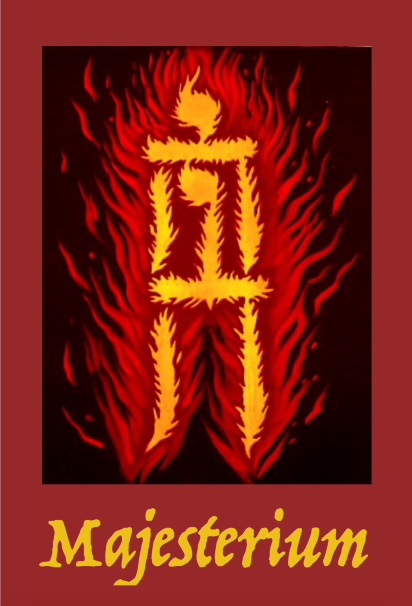Ubi caritas et amor, Deus ibi est.
The Last Supper, held in the Upper Room where the disciples gathered with Jesus, was the occasion for the birth of one of the more arcane rituals which has become part of the Christian tradition: The Washing of the Feet.
After the meal, Jesus knelt before Peter and asked to wash his feet, a familiar ritual of purification. Peter at first refused–why?
To this day, the washing of the feet on Maundy Thursday is a ritual which makes most Christians distinctly uncomfortable. In my experience, only a few in church participate during the Washing, most remain stiffly in their pews waiting for the entire episode to end.
Even among His closest disciples–Peter felt uncomfortable when Jesus initiated the intimate act of washing his feet. So intimate, so loving, so humble was this act of foot washing that it made Peter cry out in protest, as he felt that his Master had turned the tables on him (and indeed Jesus did) for Peter felt it should be his place to wash the Master’s feet, as Mary had done with her hair at a previous dinner.
Perhaps Peter’s deepest feelings of unworthiness surfaced as Jesus kneeled before him, and perhaps it was Jesus’ intention to summon up this very feeling in Peter for healing. For unworthiness, a sense of inferiority, is a serious impediment to spiritual growth. A sense of inferiority can be a form of subterfuge to escape the responsibility of growing into, and becoming adequate to the task of, one’s spiritual vocation. Peter would soon need to grow into and acknowledge his apostleship, and feelings of inadequacy would be an impediment.
Conversely, an inflated sense of worthiness–a feeling of superiority to others–is equally a serious impediment to spiritual growth. Jesus, humbling himself in service in this most simple act of feet washing, is teaching his disciples these invaluable principles.
The Washing of the Feet is thus a great testing for most of us, as most people, consciously or unconsciously, fall somewhere along the spectrum of feeling inferior to others, or feeling superior to others, and sometimes both complexes simmer together in a conflicting stew within the psyche of men. The Washing invites us to heal from both tendencies in one cleansing and purifying ritual.
Our feet function to ground us to the earth, to carry us to and fro; they are in touch with the humus of the soil, representing humility as the most humble appendages of our body. We are often ashamed of our feet; they can be odiferous after a hard day’s work of being crammed inside our shoes for long hours, as well they suffer many deformities due to their life of service with crippled toes, bunions and all sorts of flaws. They may symbolize, these poor feet, our most deep-seated sense of inferiority and vulnerability. We sometimes go to great lengths not to expose them to others and the idea of another kneeling to wash and caress our feet makes us curl at the edges!
At the other end of the spectrum the one who feels superior to others, for whom the very idea of kneeling before another to perform this humble ritual of service is anathema and repellent, might perceive the Washing of the Feet as a direct threat to their sense of ascendancy over others. Granted, these feelings are not always conscious, but the ritual washing brings these tendencies to the surface and challenges our abilities to give and receive from each other gracefully. It highlights the beauty of reciprocity, which shines and flashes not only between each other but vertically from heaven as well in the form of grace. To receive the sublime gift of grace, we need to lay aside our misgivings concerning our worthiness, and simply receive blessings with the understanding and admission that we are the beloved sons and daughters of God. We are worthy indeed, beyond imagining; it can deeply affect us to realize our relationship to our Father in heaven. Jesus was simply opening the pathway of grace for Peter to learn to receive gracefully.
Why does the Washing of the Feet take us so far out of our comfort zone? The sin of pride is one of the most subtle of vices and it will come forth to be recognized and healed by the ritual of foot washing. We so need to be healed of the separation and alienation from others by which we are crucified inwardly through the sin of pride.
Let’s not forget that the greatest of God’s angels fell from heaven because of a refusal to bend the knee to serve humankind, in direct violation of God’s will. A warning that pride can consume beings from the highest to the lowest ranks–no one is exempt from the temptation to be proud. In fact, our culture glorifies and encourages us to be proud of this and that achievement in this life.
The foot washing ritual demands that we be purified of our own agendas, offering ourselves as a servant, embodying caritas, lovingkindness, if only for the few moments we are cradling someone’s foot in a towel.
Anyone who has tended to a dying person recognizes this imperative: as a loved one is leaving us, we are required to put aside our personal priorities in order to put the needs of the dying front and center in our lives. Anyone who has taken care of a baby also understands the beauty of caritas.
Acknowledgement of the worthiness of the other as a beloved child of God can bring us out of our illusion of superiority or inferiority and pull us back to the place where we are humbled –humbled by the gift of ministering to another; humbled by the gift of receiving from another. Grace whispers in our ear to love one another, drawing us out of our loneliness and darkness into the warm light of Christ.


